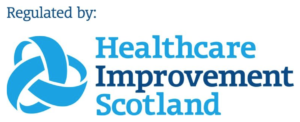If you’re planning travel to areas where yellow fever is endemic, it’s natural to wonder: how long does a yellow fever vaccine last? In the past, travellers often needed to renew their vaccination every 10 years. Today, guidelines have changed significantly. At EmCare Travel Clinic, we’ll explain what current evidence and international regulations say, who may need a booster, and how to stay protected — including how to book an appointment or get in touch.
Need help? Contact us on 0141 404 0075 or book online.
What Is Yellow Fever and How Does the Vaccine Work?
Yellow fever is a serious viral infection transmitted by Aedes or Haemagogus mosquitoes, primarily in tropical regions of Africa and South America. While many people have no symptoms or mild, flu-like illness, some develop severe disease involving liver or kidney failure, which can be fatal.
The vaccine is a live-attenuated vaccine (strain 17D), introduced in the late 1930s. It stimulates your immune system to produce neutralising antibodies that protect you from infection. Most recipients are protected within 10 days—about 95–99% depending on timing and protection is maintained thereafter.
Duration of Protection: What The Evidence Shows
WHO & CDC Position
In 2014, the World Health Organization (WHO) amended the International Health Regulations to state that a single dose of yellow fever vaccine provides lifelong protection for most people, eliminating the need for a booster every 10 years under international law. The US CDC similarly notes that typically one dose provides life‑long protection; boosters are only considered for specific circumstances, such as ongoing outbreaks or individual factors after 10 years.
Longevity of Immune Response
A systematic review and meta‑analysis published in early 2024 found that vaccine-induced immunity can last up to 40 years in as many as 80% of people, with no documented cases of yellow fever in people who mounted an appropriate initial immune response. WHO, for example, reports that out of more than 600 million doses administered since the 1930s, there have only been 12 documented cases of vaccine failure, all within five years of the primary dose—and none thereafter.
Historical Practice Still in Some Nations
Before 2016, many countries and travel regulations required a yellow fever booster every 10 years. Some jurisdictions still operate under these older rules—though they are now outdated. You may still see International Certificate of Vaccination or Prophylaxis (ICVP) forms stating “valid for 10 years from day 10 after vaccination”. But most travel authorities now recognise that this certificate is valid for the lifetime of the individual once immunity is established.
When Might a Booster Be Needed?
Although lifelong protection is the general rule, there are exceptions where a booster dose may still be recommended:
- Immunocompromised individuals, for instance people with HIV infection, especially if immunity may wane over time.
- Infants vaccinated under age 2, as early first doses may not engender lifelong immunity—boosters may be considered.
- People who had concurrent MMR vaccine at the same time as yellow fever, and women vaccinated during pregnancy, may also have less durable immunity.
- Travellers returning to yellow fever outbreak zones more than 10 years after their initial dose may be advised to take a booster as extra precaution.
In practice, EmCare Travel Clinic will assess your particular history and needs before making a recommendation.
How Can You Prove Your Yellow Fever Vaccination?
Travellers receive an official ICVP (“Yellow Card”), valid from 10 days after vaccination. Under current WHO guidelines, this certificate is valid for the lifetime of the traveller, without need for renewal—even if it states 10‑year validity in older printed copies.
However, some countries may still out of habit enforce the 10‑year expiry. It is essential to check the entry requirements for each country you plan to visit—especially if you were vaccinated before 2016 or your certificate shows an expiry.
So, How Long Does the Vaccine Last?
| Scenario | Protection Duration / Booster Needed? |
| Healthy adult (≥ 9 months old) with documented initial vaccination | Lifelong protection, no booster needed per WHO/CDC. |
| Travelling to ongoing outbreak areas after 10+ years | Booster may be considered. |
| Infant (< 2 years at first dose) | May require booster. |
| Immunocompromised, HIV-positive, or pregnancy with MMR co‑administration | May require booster. |
| Travelling to a country still enforcing 10‑year rule | May need revaccination if certificate expired. |
Why the Shift to Lifelong Validity?
- Evidence base: Decades of follow-up show extremely durable immunity after an adequate initial response, with almost no breakthrough infections beyond five years.
- Regulatory update: WHO’s 2014 amendment removed the need for mandatory revaccination every 10 years under the International Health Regulations (IHR).
- Practicality: Lifelong validity simplifies travel documentation and reduces unnecessary medical interventions.
What Does EmCare Travel Clinic Advise?
At EmCare Travel Clinic, we follow evidence-based, WHO-aligned practice:
- For most adults, one dose is sufficient for life.
- We recommend vaccination at least 10 days before travel to ensure immunity has time to develop.
- If you’re in one of the special categories listed above, we will assess whether a booster is advisable.
- We can provide up‑to‑date ICVP “Yellow Card” documentation and help you verify specific country entry requirements.
- We also explain side‑effect risks, safety considerations, and how to optimise mosquito‑avoidance methods for your trip.
Practical Steps to Take
- Check your vaccination history: Do you have a valid ICVP? When were you vaccinated?
- Review your travel destinations: Are you heading to a country still requesting boosters or inspecting older certificates?
- Contact EmCare Travel Clinic early: Vaccination should ideally be arranged 6–8 weeks before travel to allow time for scheduling and additional vaccines.
- If needed, a booster can be administered, and you’ll receive a fresh ICVP.
Why Choose EmCare Travel Clinic?
- We follow the latest UK and WHO guidance.
- We provide full risk assessment and tailor recommendations to your medical history.
- Appointments are convenient and efficient, with comprehensive travel advice.
- Your ICVP documentation is issued in line with current international standards.
Frequently Asked Questions (FAQ)
I was vaccinated in 2005 and never received a booster. Is my vaccine still valid?
Yes. Under WHO rules, a single dose provides life‑long protection. But some destination countries may still follow the older 10‑year rule. We recommend checking their current entry policy — and if in doubt, EmCare can offer a booster.
I’m HIV‑positive. Do I need a booster?
Possibly. Immunosuppression can reduce longevity of immunity. EmCare will review your specific clinical situation and advise whether a booster dose is warranted.
What side effects should I expect?
Mild reactions—such as low‑grade fever, soreness or rash—occur commonly. Severe reactions (e.g. neurological or viscerotropic disease) are exceedingly rare (on the order of 1 in 200,000 to 1 million). You will be advised to report any serious symptoms occurring within 30 days of vaccination
Travel Clinic Booking & Contact
To arrange your yellow fever vaccine or travel consultation:
- Call us on 0141 404 0075
- Or book online via our clinic appointment page
We’ll walk you through eligibility, vaccination timing, and documentation — so you’re safe and compliant for your journey.
Final Thoughts
- The yellow fever vaccine generally lasts for life, with no booster needed in healthy individuals vaccinated after age nine months.
- WHO and CDC both support this position, though certain individuals or destination countries may still require a booster or updated certificate.
- EmCare Travel Clinic offers expert advice, timely appointments, and internationally recognised vaccination certificates.
Stay protected, stay prepared — and enjoy your travels confidently.


Recent Comments